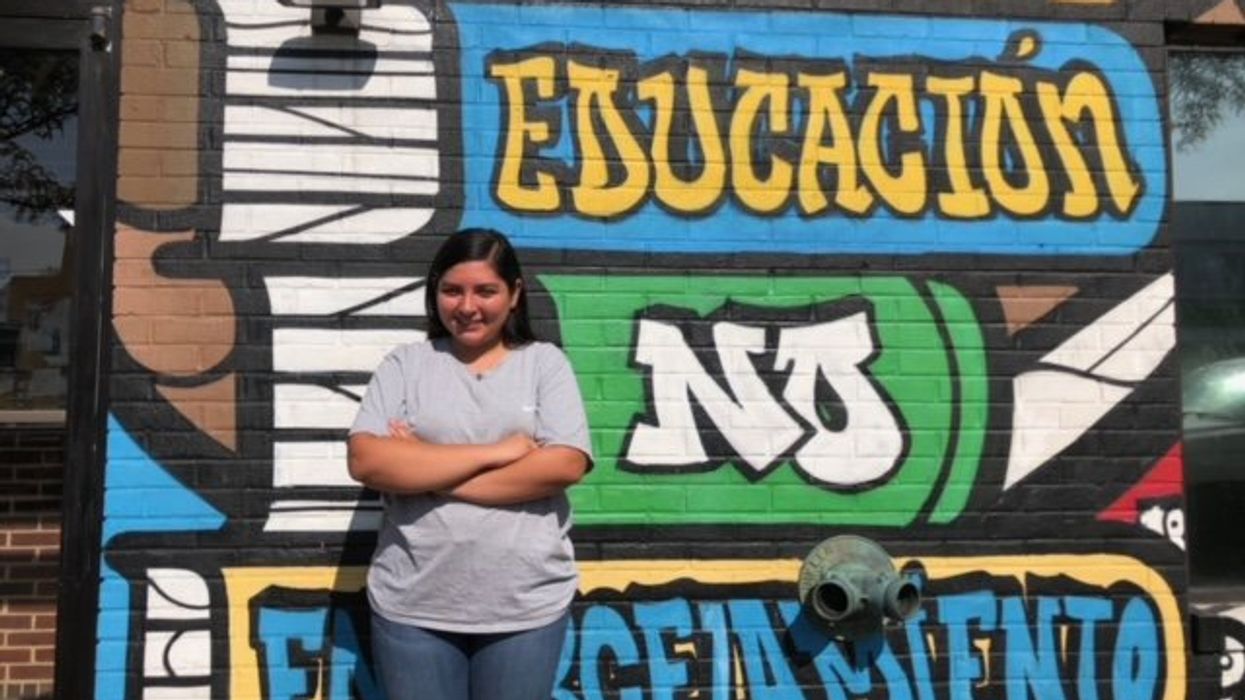Spadacini is a freelance journalist who writes about social justice and public health.
The Fulcrum presents We the People, a series elevating the voices and visibility of the persons most affected by the decisions of elected officials. In this installment, we explore the motivations of over 36 million eligible Latino voters as they prepare to make their voices heard in November.
The Arlandria neighborhood of Northern Virginia is located just a few miles southwest of the nation’s capital in a patch of land adjacent to the Potomac River, an area that was prone to frequent flooding in the 1960s and 1970s. The history of this diverse and resilient community is rooted in the struggles of the Civil War, Jim Crow and periodic land grabs by developers eager to profit from the never-ending supply of labor lured by government jobs.
Arlandria sits on the northern edge of Alexandria, bordering Arlington County, hence the creative spin on the name. Before the influx of immigrants fleeing civil war in El Salvador in the early 1980s, it was a predominantly African American residential area. It was one of the few neighborhoods with affordable housing where Black people could live in Virginia while still being close to the nation’s capital and benefiting from its steady job market.
Many immigrants who settled in Arlandria in the 1980s and ‘90s came from Chirilagua, a town in El Salvador, now a nickname for this neighborhood. While tensions between Black and Latino residents occasionally flared, shared concerns over affordable housing, workers’ rights and social justice brought the community together through Tenants and Workers United, a grassroots organization serving Chirilagua.
Sindy Carballo-Garcia is the youth group coordinator at TWU. The 22-year-old arrived in Arlandria from El Salvador with her parents when she was 8 years old and has lived there since. She is now married and planning to vote in the November elections.
“I want politicians to prioritize schools, making sure that students feel safe and are supported,” she says. “Students should not walk into schools, pass through a metal detector and feel surveilled. They need caring adults. The whole purpose of schools is to build community and not to push young people aside.”
A few years ago, Carballo-Garcia was involved in a campaign that challenged the use of school resource officers (SROs) in Alexandria public high schools. “We saw that Latinx, Black and Brown students were the ones getting arrested,” she says, adding that the program had been in place for 20 years, yet no impact data was being collected. In the end, they got the city council to defund the SRO program and divert resources towards psychologists and other psycho-social support measures.
A study on school policing published in the Virginia Law Review in 2022 indicates that Hispanic and Black students comprise almost three-quarters of students arrested due to an incident at school or referred by schools to the police. According to the Sentencing Project, in 2021, Latino youth were 16 percent more likely to be detained or committed to juvenile facilities than their white peers, compared to 76 percent in 2011.
Carballo-Garcia would like to see more school resources going to restorative practice circles instead of detention and punishment. “We need to repair the harm and build community. We must create spaces where young people can talk, acknowledge the wrong that has been done and the impact it has,” she explains. “Instead of suspending a kid for days because when they return, the issue will still be there.”
As a young Latina woman, Carballo-Garcia also cares about reproductive health and rights. “I believe a woman’s health is a personal choice, not something decided by law or controlled by others.” When asked about same-sex marriage, Carballo-Garcia says the choice to love anyone is also a personal one and one that does not need to be regulated by others. She adds, “This election is critical, and a lot is at stake.”
According to PRRI, a public opinion research group, support for same-sex couples has increased among religious and religiously unaffiliated Hispanics since 2014. Generally speaking, younger generations express higher levels of support for same-sex marriage, as indicated by the Pew Research Center.
Last, but not least, on Carballo-Garcia’s mind this November are immigrant rights and equitable health care, which are also core issues for Tenants and Workers United. The organization has recently circulated a housing survey among Chirilagua’s residents, and one of the findings is that many older tenants do not have health insurance.
“The kids are on Medicaid, but the adults are mostly uninsured,” says Carballo-Garcia. “If they get sick, they go to a Latino store to get medicine, but they cannot go to a hospital.” Despite working multiple jobs, many don’t have access to basic health care. For this young Latina leader, this is unacceptable.
In the weeks leading to Election Day, The Fulcrum will continue to publish stories from across the country featuring the people who make up the powerful Latino electorate to better understand the hopes and concerns of an often misunderstood, diverse community.
What do you think about this article? We’d like to hear from you. Please send your questions, comments, and ideas to newsroom@fulcrum.us.




















